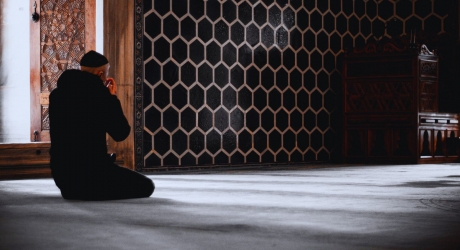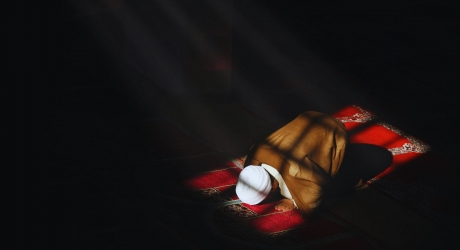According to Islamic teachings, Ramadan, the ninth month of the Hijra calendar, is the month of fasting. The Quran mentions that fasting was a common practice in all the religions: “Believers, fasting has been prescribed for you, just as it was prescribed for those before you, so that you may guard yourselves against evil.” (The Quran, 2:183). This shows the universality of the practice of fasting.
The Arabic equivalent of fasting is saum. Saum means abstinence, which is the spirit of Islamic fasting. In the month of Ramadan, believers abstain from food and drink for a limited period each day, that is, from dawn till sunset.
Saum begins at dawn (Sehri) during which people consume food and water and after which they are not to partake of any of this for the rest of the day till the roza breaks at dusk (Iftaar). This practice is continued for a month.
Prophet Muhammad once said that one who keeps a fast but does not stop lying or practicing wrong ways then God does not need him to leave his food. (Sunan Ibn Majah, Hadith No. 1689) The term ‘leave’ in this tradition actually refers to the symbolic leaving of wrong practices. Ostensibly, fasting means to abstain from food and drink but, in spirit, it includes abstaining from all kinds of undesirable activities.
Abstaining from food and drink is in fact symbolic abstinence. Ramadan is, in essence, a form of an annual training for living a responsible life. Being of a responsible character means doing what is wanted and refraining from all such deeds as are undesirable.
The month of Ramadan begins from the sighting of the moon. It is reported that when the Prophet of Islam saw the new moon of Ramadan, he said: “O God, make this month for us a month of peace and submission.” (Musnad Ahmad, Hadith No. 1397)
This saying of the Prophet is like a pledge and the month of Ramadan begins from the taking of this pledge. According to this, believers are required to live in peace, that is, be of a non-violent character. This is the true spirit of the month of Ramadan.
Fasting is a conscious act, not a mere ritual. It is performed with full consciousness of its implications—the mark of a truly religious person. Sehri is the meal eaten before commencing the fast. The Prophet observed: ‘Sehri is a blessing bestowed on you by God, so you should partake of it.’” (Musnad Ahmad, Hadith No. 23142) Eating Sehri before dawn is a reminder that when God gives us a difficult command, (like fasting) He also grants some concessions (sehri) along with it.
In the month of Ramadan, believers are required to study the Quran more and more, in prayer and out of prayer. Then they rediscover the message and teachings of the Quran, and reshape their minds according to Quranic tenets.
Sunset is the time for breaking the fast. As he takes Iftar, he thanks God with the following words of prayer used by the Prophet of Islam: “May the Lord be thanked and praised with Whose help I was able to fast, and now I am breaking the fast with the food and drink that He has provided. May God accept it. He is the All Hearing, the All Knowing.”(Kanzul Ummal, Hadith No. 18057 and 18058) This prayer expresses the feelings that surge within a believer while breaking his fast.
There is a special prayer, said daily in the month of Ramadan, called tarawih. It is observed after the isha prayer during the night. Believers establish contact with God through the Quran, which is the Book of God.
The last ten days of the month of Ramadan are the days of itikaf, that is, going into seclusion. Itikaf means sitting in the mosque for a limited period. It is a practice which saves believers from all kinds of distraction. Itikaf is a period of contemplation, introspection, and self-improvement.
Fasting during the month of Ramadan is, therefore, a special training in purification of the soul. Fasting makes people conscious about dos and don’ts. Ramadan is a course in spiritual development that prepares one to lead a principled life—not merely during the month of fasting, but, in fact, for the whole year round. In this sense, Ramadan is an annual training period for every believer.
Source: Ramadan: A Month of Purification











